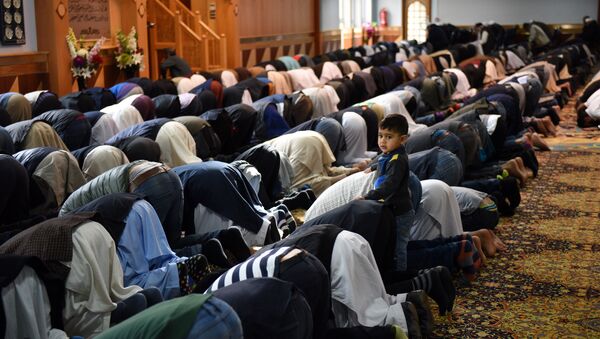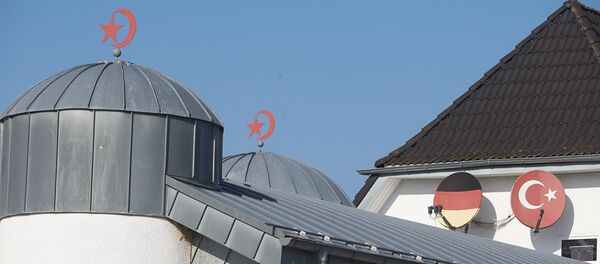The BBC has obtained a recording of a sermon delivered by Mustafa Graf at the Didsbury Mosque in Manchester on December 16, 2016, six months before Abedi detonated a suicide bomb killing 22 people at an Ariana Grande concert in the city.
During the sermon about the suffering in Syria, Graf encouraged followers to “take action,” calling jihad — which always means waging holy war — a “source of pride and dignity,” according to the BBC.
Even though in the days after the Manchester attack Graf assured the public that he did not share Abedi’s views, two Muslim scholars said they both believe the language of the sermon represents a call for armed jihad.
“He's giving them the narrative of them against us,” Islamic scholar Shaykh Rehan told BBC News.
“He is psychologically and practically brainwashing young people into either travelling or to do something to take action,” he added.
Usama Hasan, Head of Islamic Studies at Quilliam, agreed, saying that “from the context and the way these texts [the religious passages quoted within the sermon] are used they are clearly referring to military jihad, to armed jihad.”
“Sadly, I wouldn't be surprised if Salman Abedi's horrific suicide bombing was partly inspired by this sermon,” he added.
At least five men who attended the mosque either went to fight in Syria or were jailed for supporting Daesh, according to the BBC.
In a statement, the trustees of Didsbury Mosque said Mustafa Graf's sermon was highlighting the plight of Syrians and his use of the words “jihad” and “mujahedeen” had been misinterpreted.
“We do not tolerate or instigate any form of preaching that breaches both Islamic principles and the laws of England and Wales,” it said.
READ MORE: WATCH: Armed Police And Bomb Squad Arrive At Site Of Manchester Arena Explosion
On May 22, 2017, Salman Ramadan Abedi, a 22-year-old local man of Libyan ancestry, detonated a homemade shrapnel-laden bomb as people were leaving Manchester Arena after a concert.
Twenty-three people were killed, including the attacker, and 139 were wounded, more than half of them children. Several hundred more suffered psychological trauma.
After initial suspicions of a terrorist network, police later said they believed Abedi had largely acted alone but that others had been aware of his plans.
The incident was the deadliest terrorist attack and the first suicide bombing in Britain since the July 2005 London bombings.



